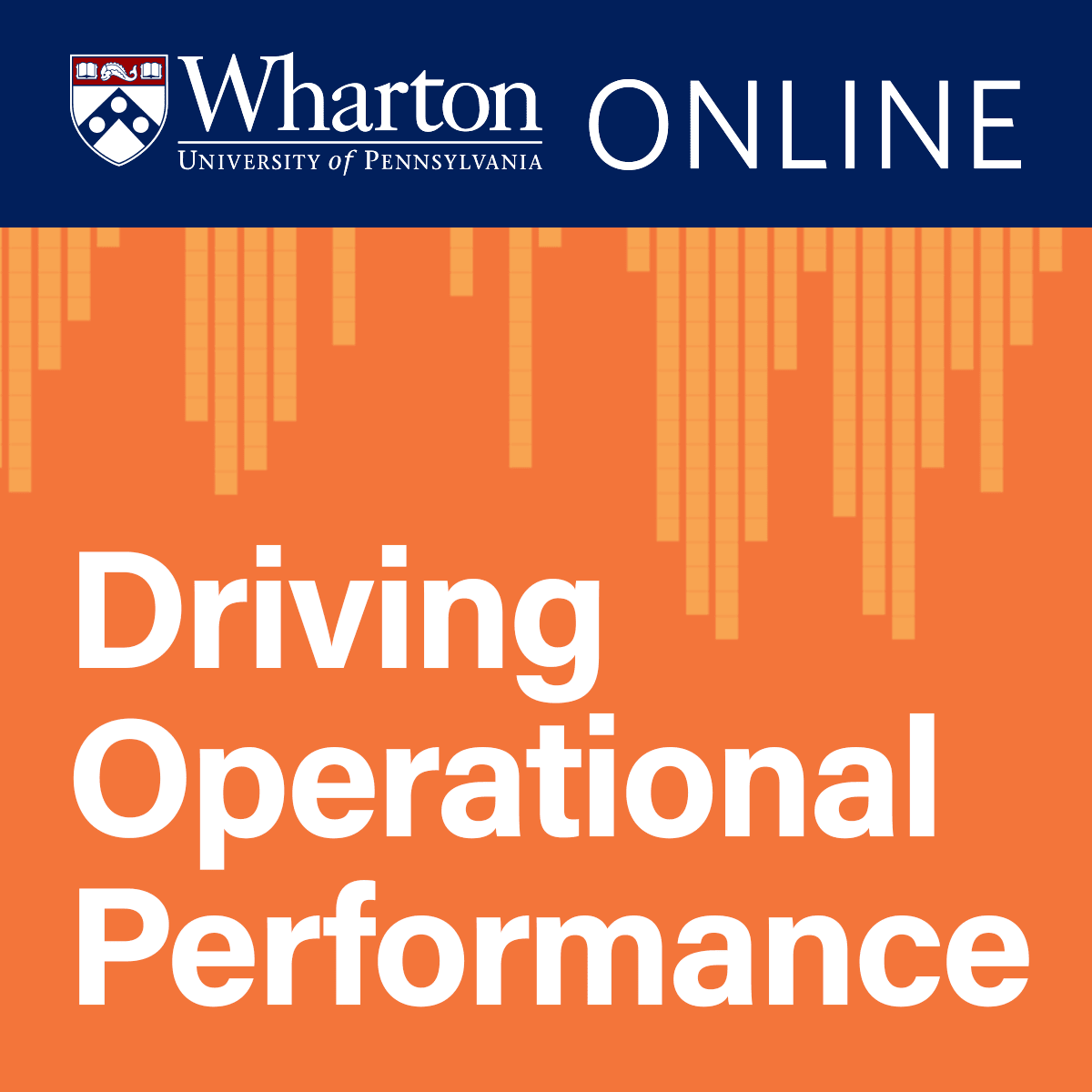Operations Management
vigating the World of Operations Management
Operations management is the engine room of any successful organization. It's the art and science of designing, controlling, and improving the processes that create and deliver a company's products and services. Think of it as the conductor of an orchestra, ensuring all the different sections work together harmoniously to produce a beautiful symphony – or in this case, an efficient and profitable business. At a high level, operations management focuses on transforming inputs like raw materials, labor, and technology into outputs – the goods and services that customers value.
What makes a career in operations management potentially engaging and exciting? Firstly, it’s a field with tangible impact. Operations managers see the direct results of their decisions in improved efficiency, higher quality products, and satisfied customers. Secondly, it’s a dynamic and ever-evolving field. With new technologies, changing global landscapes, and increasing customer expectations, there's always a new challenge to tackle and a new problem to solve. Finally, because operations are fundamental to every industry, the skills learned in operations management are highly transferable, opening doors to a wide array of career opportunities.
Introduction to Operations Management
This section will delve deeper into the foundational concepts of operations management, exploring its critical role within organizations and its connection to overall business strategy. We'll also highlight the key objectives that drive decision-making in this field.
Defining Operations Management and Its Role in Organizations
Operations management (OM) is the administration of business practices to create the highest level of efficiency possible within an organization. It involves the planning, organizing, directing, and controlling of all the resources needed to produce a company's goods and services. Essentially, OM professionals are problem-solvers who work to ensure that processes run smoothly, resources are used effectively, and customer needs are met.
The role of operations management is central to any organization, regardless of its size or industry. Whether it's a manufacturing plant producing cars, a hospital providing patient care, a restaurant serving meals, or a tech company developing software, effective operations management is crucial for success. It acts as the bridge between strategic goals and day-to-day execution, translating high-level objectives into actionable plans and processes.
Furthermore, operations management is not an isolated function. It is deeply interconnected with other areas of the business, such as marketing, finance, and human resources. For example, marketing identifies customer needs, which operations then strives to fulfill. Finance provides the budget and resources that operations must manage effectively. Human resources recruits and trains the personnel who carry out operational tasks. This interconnectedness highlights the importance of a holistic approach to managing operations.
These courses offer a solid introduction to the fundamental concepts of operations management.
The Connection Between Operations and Business Strategy
Operations management is not just about day-to-day tasks; it plays a vital role in shaping and executing a company's overall business strategy. A company's competitive strategy – whether it's focused on cost leadership, differentiation (e.g., superior quality or unique features), or responsiveness – heavily influences its operational decisions. For instance, a company competing on cost will prioritize efficiency and waste reduction in its operations. In contrast, a company competing on innovation might focus on flexible processes that can quickly adapt to new product designs.
The operations strategy, therefore, must be aligned with the broader business strategy. This involves making long-term decisions about the design and management of the operations function to support the company's competitive priorities. These decisions can encompass areas like technology adoption, capacity planning, facility location, and supply chain design. A well-defined operations strategy ensures that the company's operational capabilities are a source of competitive advantage.
Consider how a fast-food chain's operations strategy, focused on speed and consistency, differs from that of a fine-dining restaurant, which prioritizes quality and customer experience. Both are in the food service industry, but their distinct business strategies necessitate very different operational approaches. This illustrates the critical link between how a company operates and how it competes in the marketplace.
These courses explore the strategic aspects of operations management.
Highlighting Key Objectives
The primary goals of operations management revolve around maximizing efficiency, ensuring quality, and controlling costs. Efficiency refers to using the fewest resources possible to produce the desired output. This could mean minimizing waste, reducing production time, or optimizing labor utilization. High efficiency leads to lower costs and increased profitability.
Quality is another crucial objective. This involves consistently meeting or exceeding customer expectations for products and services. Quality can encompass various dimensions, such as reliability, durability, performance, and aesthetics. Effective quality management not only enhances customer satisfaction but also reduces costs associated with defects, rework, and warranties.
Cost control is intrinsically linked to efficiency and quality. By streamlining processes, reducing waste, and minimizing errors, operations managers can significantly lower production and service delivery costs. This allows companies to offer competitive prices, increase profit margins, or reinvest savings into other areas of the business. Other important objectives in operations management include ensuring timely delivery, maintaining flexibility to adapt to changing market demands, and promoting sustainability.
This book provides a comprehensive overview of operations management, including its key objectives.
Historical Evolution of Operations Management
Understanding the history of operations management provides valuable context for current practices and highlights the field's continuous adaptation to new challenges and opportunities. This section traces the key developments from the Industrial Revolution to modern methodologies.
Tracing Developments from the Industrial Revolution to Modern Practices
The roots of operations management can be traced back to the Industrial Revolution in the late 18th and 19th centuries. This era saw the rise of factories and mass production, which necessitated new ways of organizing and managing work. Key figures like Eli Whitney (interchangeable parts) and Frederick W. Taylor (scientific management) laid the groundwork for systematic approaches to improving efficiency and productivity.
The early 20th century brought further advancements, most notably Henry Ford's moving assembly line, which revolutionized manufacturing. This period also saw the development of statistical quality control methods. After World War II, operations management continued to evolve, with a greater emphasis on mathematical modeling and quantitative techniques, often referred to as operations research.
The latter half of the 20th century witnessed the emergence of Japanese manufacturing philosophies, particularly the Toyota Production System, which emphasized waste reduction and continuous improvement. This led to the global adoption of concepts like Just-In-Time (JIT) inventory and Total Quality Management (TQM). The rise of globalization and information technology in the late 20th and early 21st centuries further transformed operations management, enabling more complex supply chains and data-driven decision-making.
Analyzing the Impact of Milestones like Lean Manufacturing and Six Sigma
Two of the most influential methodologies in modern operations management are Lean Manufacturing and Six Sigma. Lean, originating from the Toyota Production System, focuses on eliminating waste in all its forms to improve efficiency and value delivery. Waste (or "Muda" in Japanese) can include defects, overproduction, waiting, unnecessary motion, excess inventory, over-processing, and underutilized talent. The core idea of Lean is to create more value for customers with fewer resources.
Six Sigma, on the other hand, is a data-driven methodology aimed at reducing process variation and eliminating defects to improve quality and consistency. It employs a structured problem-solving approach, often known by the acronym DMAIC (Define, Measure, Analyze, Improve, Control), and relies heavily on statistical tools. The goal of Six Sigma is to achieve a level of quality that is near perfection, with fewer than 3.4 defects per million opportunities.
The impact of Lean and Six Sigma on businesses has been profound. Companies adopting these methodologies have reported significant improvements in efficiency, quality, customer satisfaction, and profitability. Many organizations now use a combined approach, known as Lean Six Sigma, which leverages the strengths of both methodologies to achieve comprehensive operational excellence. These approaches are not limited to manufacturing; they have been successfully applied in service industries, healthcare, and government.
This book delves into the principles of Lean Six Sigma.
These courses provide insights into Lean Manufacturing and Six Sigma methodologies.
Linking Historical Shifts to Current Methodologies
The historical evolution of operations management demonstrates a continuous search for better ways to produce goods and services. Each era built upon the innovations of the past, leading to the sophisticated methodologies we see today. For example, the principles of scientific management, with its focus on optimizing individual tasks, can be seen as a precursor to later efforts in process analysis and improvement.
The emphasis on quality control that emerged in the mid-20th century laid the foundation for comprehensive quality management systems like TQM and Six Sigma. Similarly, the focus on efficiency and flow in early mass production systems evolved into the sophisticated waste reduction techniques of Lean manufacturing. The increasing interconnectedness of the global economy and the rapid advancements in information technology have further shaped modern operations management, leading to a greater focus on supply chain management, data analytics, and sustainability.
Current methodologies in operations management are a synthesis of these historical developments, adapted to the complexities and demands of the modern business environment. The ongoing trends towards digitalization, automation, and sustainability will undoubtedly continue to drive the evolution of this critical field.
This book offers a historical perspective on production systems, relevant to understanding current methodologies.
Core Principles of Operations Management
A strong grasp of the core principles of operations management is essential for anyone looking to excel in this field. These principles provide a framework for making sound decisions and driving operational improvements. This section will detail key concepts such as process optimization, capacity planning, risk management, and continuous improvement.
Detailing Principles like Process Optimization and Capacity Planning
Process optimization is a fundamental principle in operations management. It involves analyzing existing processes to identify inefficiencies, bottlenecks, and areas for improvement, and then redesigning them to enhance performance. The goal is to make processes faster, more reliable, less costly, and more aligned with customer needs. Techniques used in process optimization can range from simple flowcharting and value stream mapping to more advanced statistical analysis and simulation modeling.
Capacity planning is another critical aspect of operations management. It deals with determining the production capacity an organization needs to meet current and future demand. This involves forecasting demand, assessing existing capacity, and making decisions about investments in new capacity or adjustments to existing capacity. Effective capacity planning ensures that the organization can meet customer demand without over-investing in resources or facing shortages that lead to lost sales and customer dissatisfaction.
Both process optimization and capacity planning require a deep understanding of the organization's operations and the factors that influence performance and demand. They are ongoing activities, as processes can always be improved and demand patterns can change over time.
These courses cover essential principles like process optimization and capacity planning.
Explaining the Role of Decision-Making Frameworks
Operations managers constantly face complex decisions that can have significant impacts on the organization. To navigate these challenges effectively, they rely on various decision-making frameworks. These frameworks provide a structured approach to analyzing problems, evaluating alternatives, and selecting the best course of action. Examples include cost-benefit analysis, break-even analysis, decision trees, and linear programming.
These frameworks help to bring objectivity and rigor to the decision-making process, reducing reliance on intuition alone. They encourage a data-driven approach, where decisions are based on careful analysis of relevant information. For instance, a cost-benefit analysis helps to weigh the potential advantages of a decision against its potential disadvantages, while a decision tree can map out different possible outcomes and their probabilities.
The choice of framework depends on the nature of the decision and the available data. Understanding and applying these frameworks is a key skill for operations managers, enabling them to make informed choices that optimize operational performance and contribute to the overall success of the organization.
This course helps in understanding decision-making in operations.
Covering Risk Management and Continuous Improvement
Risk management is an increasingly important principle in operations management. It involves identifying potential risks that could disrupt operations, assessing their likelihood and potential impact, and developing strategies to mitigate or respond to them. Risks can arise from various sources, including supply chain disruptions, equipment failures, natural disasters, cybersecurity threats, and changes in market conditions. Effective risk management helps to build resilience and ensure business continuity.
Continuous improvement, often referred to by the Japanese term "Kaizen," is a philosophy that emphasizes ongoing, incremental improvements in all aspects of operations. It is based on the idea that even small improvements, when consistently applied, can lead to significant long-term gains in efficiency, quality, and customer satisfaction. Continuous improvement involves empowering employees at all levels to identify and implement improvements in their own work areas. Methodologies like Lean and Six Sigma are strongly rooted in the principle of continuous improvement.
Both risk management and continuous improvement are proactive approaches that aim to enhance the robustness and performance of operations. They require a culture of vigilance, learning, and adaptation within the organization.
This book is a classic in the field and touches upon continuous improvement and quality.
Technology in Operations Management
Technology plays an increasingly pivotal role in modern operations management, enabling greater efficiency, visibility, and control over complex processes. This section explores key technologies like Enterprise Resource Planning (ERP) systems, automation tools, and the application of Artificial Intelligence (AI) and Machine Learning (ML), as well as addressing associated cybersecurity challenges.
Exploring ERP Systems and Automation Tools
Enterprise Resource Planning (ERP) systems are integrated software applications that allow organizations to manage and automate many core business processes. In operations management, ERP systems provide a centralized platform for planning, executing, and monitoring activities related to production, inventory, supply chain, and quality. They facilitate data sharing across different departments, improving coordination and decision-making. By providing real-time visibility into operations, ERP systems help managers identify bottlenecks, track performance, and respond quickly to changes.
Automation tools encompass a wide range of technologies, from robotic process automation (RPA) for administrative tasks to advanced robotics and automated guided vehicles (AGVs) in manufacturing and logistics. Automation can significantly improve efficiency, reduce errors, enhance safety, and free up human workers to focus on more complex and value-added activities. The selection and implementation of automation technologies require careful consideration of costs, benefits, and the impact on the workforce.
The integration of ERP systems and automation tools is a key trend, creating "smart factories" and highly efficient service operations where data flows seamlessly and processes are largely self-regulating.
This course discusses information technology in operations.
Discussing AI/ML Applications in Predictive Analytics
Artificial Intelligence (AI) and Machine Learning (ML) are transforming operations management by enabling sophisticated predictive analytics. These technologies can analyze vast amounts of historical and real-time data to identify patterns, forecast future trends, and optimize decisions. For example, AI-powered demand forecasting can improve inventory management and production planning. Predictive maintenance uses ML algorithms to anticipate equipment failures, allowing for proactive maintenance and minimizing downtime.
In supply chain management, AI and ML can optimize logistics routes, predict disruptions, and improve supplier selection. Quality control can be enhanced through AI-driven visual inspection systems that can detect defects with greater accuracy and speed than human inspectors. The ability of AI and ML to learn and adapt over time means that these systems can continuously improve their performance.
While the potential of AI and ML in operations is immense, successful implementation requires access to high-quality data, specialized skills, and careful consideration of ethical implications. Many organizations are now exploring how to best leverage these powerful technologies to gain a competitive edge.
This course touches upon AI and its impact on businesses.
Addressing Cybersecurity Challenges in Digital Operations
As operations become increasingly digitized and interconnected, cybersecurity becomes a critical concern. The reliance on ERP systems, cloud computing, Internet of Things (IoT) devices, and other digital technologies creates new vulnerabilities that malicious actors can exploit. A cybersecurity breach in an operational context can lead to production stoppages, data theft, compromised quality, and significant financial losses.
Operations managers must work closely with IT and cybersecurity professionals to implement robust security measures. This includes network security, access controls, data encryption, regular security audits, and employee training on cybersecurity best practices. Developing incident response plans is also crucial to minimize the impact of any potential breach.
The challenge is to balance the benefits of digital transformation with the need to protect critical operational assets and data. A proactive and comprehensive approach to cybersecurity is essential for maintaining the integrity and resilience of modern digital operations.
Career Pathways in Operations Management
A career in operations management can be both challenging and rewarding, offering diverse roles across various industries. This section outlines common career paths, discusses necessary skills and certifications, and provides insights into salary expectations and industry demand. For those considering a pivot into this field, or just starting, remember that every expert was once a beginner. The journey requires dedication, but the skills you acquire are highly valued and broadly applicable.
Outlining Roles (e.g., Supply Chain Manager, Operations Analyst)
Operations management encompasses a wide range of roles, each with specific responsibilities. An Operations Manager oversees the entire production process or service delivery system, ensuring efficiency and quality. They are responsible for planning, organizing, and controlling resources to meet organizational goals.
A Supply Chain Manager focuses on the flow of goods and services from raw materials to the end consumer. This includes procurement, logistics, warehousing, and inventory management. They work to optimize the supply chain for cost, speed, and reliability.
An Operations Analyst uses data and analytical tools to identify areas for improvement within operations. They might analyze production data, customer feedback, or supply chain performance to recommend changes that enhance efficiency or quality. Other common roles include Production Planner, Quality Assurance Manager, Logistics Coordinator, and Plant Manager.
The specific titles and responsibilities can vary depending on the industry and the size of the organization. However, all these roles share a common focus on improving processes and achieving operational excellence.
These courses provide a good starting point for understanding different facets of operations and supply chain roles.
Detailing Required Skills and Certifications (e.g., APICS, Lean Six Sigma)
Success in operations management requires a blend of technical and soft skills. Technical skills include process analysis, data analysis, project management, quality control techniques, and familiarity with relevant software (e.g., ERP systems, Microsoft Excel). Analytical and problem-solving abilities are crucial for identifying issues and developing effective solutions.
Soft skills are equally important. Strong communication skills are needed to interact with team members, other departments, suppliers, and customers. Leadership and teamwork skills are essential for managing teams and collaborating on projects. Adaptability and resilience are also valuable, as operations managers often deal with unexpected challenges and changing priorities. [28, Casey DeRoo Ph. D.]
Several certifications can enhance a career in operations management. APICS (now part of ASCM - Association for Supply Chain Management) offers certifications like CSCP (Certified Supply Chain Professional) and CPIM (Certified in Planning and Inventory Management), which are globally recognized and demonstrate expertise in supply chain and operations principles. Lean Six Sigma certifications (e.g., Green Belt, Black Belt) validate skills in process improvement methodologies and are highly valued by employers across industries.
Pursuing these certifications can significantly boost employability and earning potential. If you're new to the field, gaining foundational knowledge through online courses can be a great first step before tackling more advanced certifications. OpenCourser's Business and Industrial Engineering categories offer a wealth of resources to build these skills.
Discussing Salary Ranges and Industry Demand
Salaries in operations management vary based on factors such as experience, education, certifications, industry, and geographic location. According to the U.S. Bureau of Labor Statistics (BLS), the median annual wage for general and operations managers was $101,280 in May 2023. Entry-level positions will typically command lower salaries, while experienced managers with specialized skills and a proven track record can earn significantly more. For instance, an operations manager with up to one year of experience might earn an average base salary around $64,722, while those with 10-14 years of experience could see an average of $86,284. Some sources report average annual salaries for Operations Managers around $104,054, with ranges from approximately $80,000 to over $130,000. Another source indicates an average annual pay of $63,456.
The job outlook for operations managers is generally positive. The BLS projects that employment for top executives, which includes operations managers, is expected to grow about as fast as the average for all occupations. Demand is driven by the need for organizations to operate efficiently and effectively in a competitive global market. Industries with significant demand for operations professionals include manufacturing, healthcare, logistics, retail, and technology.
It's important to research specific salary ranges and demand in your desired industry and location. Resources like the U.S. Bureau of Labor Statistics Occupational Outlook Handbook provide valuable insights. While the path may seem daunting, especially for career changers, the consistent demand and potential for growth make operations management an attractive field. Setting realistic expectations and focusing on skill development can pave the way for a successful transition.
This book offers a broad perspective on operations management, relevant for understanding career contexts.
Global Supply Chain Management
In today's interconnected world, effective global supply chain management is paramount for most businesses. This section will analyze the complexities of cross-border operations, discuss strategies for building resilient supply chains, and cover the growing importance of sustainability in global logistics.
Analyzing Challenges in Cross-Border Operations
Managing supply chains that span multiple countries presents a unique set of challenges. These include navigating different regulatory environments, dealing with customs procedures and trade tariffs, and managing longer lead times and transportation complexities. Currency fluctuations, political instability, and cultural differences can also add layers of complexity to cross-border operations.
Language barriers and varying business practices can lead to miscommunications and inefficiencies. Furthermore, ensuring visibility and traceability across a global supply chain can be difficult, making it harder to respond to disruptions or quality issues. The extended length of global supply chains also increases their vulnerability to unforeseen events, such as natural disasters, pandemics, or geopolitical conflicts, which can severely impact the flow of goods and materials.
Addressing these challenges requires careful planning, robust systems, strong relationships with international partners, and a deep understanding of the global trade landscape. Companies must invest in technology and talent to effectively manage the intricacies of international logistics and trade compliance.
This course delves into supply chain management, including global aspects.
Discussing Strategies for Resilience (e.g., Nearshoring, Multi-Sourcing)
Recent global disruptions have highlighted the critical need for supply chain resilience – the ability of a supply chain to withstand and recover from shocks. Several strategies can help build resilience. Nearshoring, which involves relocating production or sourcing to countries closer to the home market, can reduce lead times, transportation costs, and geopolitical risks compared to distant offshoring locations.
Multi-sourcing, or diversifying suppliers for critical components and materials, reduces dependence on a single source and provides alternatives if one supplier faces disruptions. While this may sometimes increase complexity or unit costs, the benefit of reduced risk can outweigh these factors. Building stronger, more collaborative relationships with key suppliers can also enhance resilience, fostering better communication and mutual support during challenging times.
Other resilience strategies include increasing inventory levels for critical items (safety stock), investing in advanced forecasting and risk assessment technologies, and designing products for greater supply chain flexibility (e.g., using standardized components). The goal is to create a supply chain that is not only efficient in stable times but also adaptable and robust in the face of uncertainty.
This book provides a foundational understanding of supply chain management, crucial for resilience strategies.
Covering Sustainability in Global Logistics
Sustainability is an increasingly important consideration in global supply chain management. This involves minimizing the environmental impact of logistics operations and promoting ethical and socially responsible practices throughout the supply chain. Key areas of focus include reducing carbon emissions from transportation, minimizing waste in packaging and operations, and ensuring fair labor practices among suppliers.
Strategies for sustainable logistics include optimizing transportation routes to reduce fuel consumption, shifting to more environmentally friendly modes of transport (e.g., rail or sea freight instead of air freight where feasible), using electric or alternative fuel vehicles, and adopting sustainable packaging materials. Companies are also facing increasing pressure from consumers, investors, and regulators to improve the sustainability of their supply chains and to report on their environmental, social, and governance (ESG) performance.
While implementing sustainable practices can involve upfront investments, it can also lead to long-term benefits, such as cost savings from reduced energy consumption and waste, enhanced brand reputation, and improved stakeholder relationships. The European Environment Agency predicts that logistics could account for up to 40% of global carbon dioxide emissions by 2050 if significant measures are not taken, underscoring the urgency of this issue.
This course touches on sustainability within business operations.
Quality Management Systems
Ensuring and improving quality is a cornerstone of effective operations management. Quality Management Systems (QMS) provide a structured approach to achieving consistent quality in products and services. This section will compare prominent QMS frameworks, explain statistical process control techniques, and discuss cost of quality models.
Comparing ISO 9001, TQM, and Six Sigma
Several frameworks and methodologies guide quality management. ISO 9001 is an internationally recognized standard for quality management systems. It provides a set of requirements that organizations can use to establish, implement, maintain, and continually improve their QMS. Certification to ISO 9001 demonstrates a commitment to quality and can be a prerequisite for doing business in some industries.
Total Quality Management (TQM) is a management philosophy that emphasizes continuous improvement, customer satisfaction, and the involvement of all employees in quality efforts. TQM focuses on creating a culture of quality throughout the organization, where everyone takes responsibility for meeting and exceeding customer expectations. It encompasses a wide range of principles and practices aimed at long-term quality improvement.
Six Sigma, as discussed earlier, is a data-driven methodology focused on reducing defects and process variability. While ISO 9001 provides a framework and TQM offers a broad philosophy, Six Sigma provides specific tools and techniques for identifying and eliminating the root causes of quality problems. These approaches are not mutually exclusive; many organizations integrate elements from all three to create a comprehensive QMS tailored to their specific needs.
This course introduces quality concepts and standards like ISO 9000.
Explain Statistical Process Control (SPC) Techniques
Statistical Process Control (SPC) is a key component of many quality management systems. It involves using statistical methods to monitor and control a process to ensure it operates at its full potential to produce conforming products. SPC helps to distinguish between common cause variation (inherent in any process) and special cause variation (due to specific, identifiable factors).
Common SPC tools include control charts, histograms, Pareto charts, and cause-and-effect diagrams (also known as Ishikawa or fishbone diagrams). Control charts are graphical tools used to track process performance over time and identify when a process is going out of statistical control, signaling the need for investigation and corrective action. By monitoring processes in real-time, SPC allows for early detection of problems, preventing the production of large quantities of defective products.
The effective use of SPC requires an understanding of basic statistical concepts and a commitment to data collection and analysis. When implemented correctly, SPC can lead to significant improvements in process consistency, defect reduction, and overall product quality.
Discussing Cost of Quality (COQ) Models
Cost of Quality (COQ) is a methodology used to quantify the financial impact of quality-related activities and deficiencies. It helps organizations understand the economic benefits of investing in quality improvement. COQ models typically categorize quality costs into four main areas:
- Prevention Costs: Costs incurred to prevent defects from occurring in the first place. This includes activities like quality planning, employee training, process design, and supplier quality assurance.
- Appraisal Costs: Costs associated with evaluating, measuring, and auditing products and processes to ensure they meet quality standards. This includes inspection, testing, and equipment calibration.
- Internal Failure Costs: Costs incurred when defects are detected before the product or service reaches the customer. This includes scrap, rework, re-testing, and downtime caused by quality problems.
- External Failure Costs: Costs that arise when defects are found after the product or service has been delivered to the customer. This includes warranty claims, product returns, customer complaints, product recalls, and loss of customer goodwill.
The principle behind COQ is that investing in prevention and appraisal activities can significantly reduce internal and external failure costs, leading to an overall lower cost of quality and improved profitability. By tracking and analyzing these costs, organizations can identify areas where quality improvement efforts will yield the greatest financial return.
This book offers insights into service operations, where quality is paramount.
Sustainable Operations Management
Sustainability in operations management involves designing and managing processes in a way that minimizes negative environmental impacts and promotes social and economic well-being. This section explores circular economy models, carbon footprint reduction strategies, and regulatory compliance related to sustainability.
Exploring Circular Economy Models
The circular economy is a model of production and consumption that aims to keep products, components, and materials at their highest utility and value for as long as possible. This contrasts with the traditional linear "take-make-dispose" model. In a circular economy, waste is minimized, and resources are reused, repaired, refurbished, and recycled. This approach not only reduces environmental impact but can also create new economic opportunities and enhance resource security.
Operations management plays a crucial role in implementing circular economy principles. This can involve designing products for durability and recyclability, developing closed-loop supply chains where used products are collected and reprocessed, and adopting business models based on product-as-a-service or sharing platforms. For example, a company might lease its products rather than selling them, taking responsibility for their maintenance, repair, and eventual end-of-life management. Implementing circular economy models often requires collaboration across the value chain, from suppliers to customers and recyclers.
The shift towards a circular economy is driven by growing awareness of resource scarcity, environmental concerns, and the potential for innovation and value creation. Many companies are now exploring how to integrate circular principles into their operations to build more sustainable and resilient businesses.
This book explores the concept of the circular economy in operations.
record:8fukg4
Analyzing Carbon Footprint Reduction Strategies
Reducing an organization's carbon footprint – the total amount of greenhouse gases emitted directly or indirectly by its activities – is a key aspect of sustainable operations management. Operations, particularly in manufacturing and logistics, can be significant contributors to carbon emissions through energy consumption, transportation, and industrial processes.
Strategies for carbon footprint reduction include improving energy efficiency in facilities and processes, transitioning to renewable energy sources, optimizing transportation routes and modes to reduce fuel consumption, and redesigning products and processes to use less energy-intensive materials. Companies can also invest in carbon offsetting projects or adopt carbon capture technologies, though the primary focus is typically on direct emissions reductions.
Measuring and tracking carbon emissions is an important first step, allowing organizations to identify the largest sources of emissions and prioritize reduction efforts. Many companies are setting ambitious carbon reduction targets and integrating them into their overall business strategy, driven by regulatory pressures, investor expectations, and a commitment to environmental stewardship.
Discussing Regulatory Compliance (e.g., ESG Reporting)
Governments and regulatory bodies worldwide are implementing stricter environmental regulations and reporting requirements. This includes rules related to emissions, waste management, hazardous materials, and energy efficiency. Operations managers must ensure that their processes comply with all applicable laws and standards to avoid penalties and reputational damage.
A growing area of focus is Environmental, Social, and Governance (ESG) reporting. Investors, customers, and other stakeholders are increasingly demanding transparency about a company's performance on ESG criteria. Operations play a significant role in many ESG metrics, particularly those related to environmental impact (e.g., carbon emissions, water usage, waste generation) and social aspects (e.g., worker safety, labor practices in the supply chain).
Effective ESG reporting requires robust data collection and management systems within operations. It also necessitates a proactive approach to identifying and addressing ESG risks and opportunities. For operations managers, this means integrating sustainability considerations into all aspects of decision-making, from process design to supplier selection.
Future Trends in Operations Management
The field of operations management is constantly evolving, driven by technological advancements, changing market dynamics, and new societal expectations. This section will look ahead at some of the key trends expected to shape the future of operations, including the impact of quantum computing, the role of blockchain, and the increasing collaboration between humans and artificial intelligence.
Predicting the Impact of Quantum Computing on Logistics
Quantum computing, though still in its early stages, holds the potential to revolutionize complex optimization problems in logistics and supply chain management. Classical computers can struggle with the sheer number of variables involved in tasks like optimizing global shipping routes in real-time, managing vast inventories, or simulating complex supply chain disruptions. Quantum computers, by leveraging the principles of quantum mechanics, could potentially solve these problems much faster and more efficiently.
Potential applications in logistics include dynamic route optimization for last-mile delivery, significantly reducing fuel consumption and delivery times. Quantum algorithms could also enhance demand forecasting, improve warehouse management, and optimize fleet utilization by factoring in a vast array of real-time variables. While widespread commercial use is likely still some years away, research and development are progressing rapidly, and companies in the logistics sector are beginning to explore the possibilities. According to DHL's Logistics Trend Radar, quantum computing is earmarked as a key trend within the next five to ten years in the industry.
Assessing Blockchain in Supply Chain Transparency
Blockchain technology offers a decentralized and immutable ledger that can enhance transparency and traceability in supply chains. Each transaction or movement of goods can be recorded as a "block" on the chain, creating a permanent and verifiable record that is shared among authorized participants. This can improve visibility into the provenance of products, track goods as they move through the supply chain, and verify authenticity.
Potential benefits of blockchain in supply chain management include reduced fraud and counterfeiting, improved food safety through better traceability, more efficient recall management, and streamlined customs and compliance processes. By providing a single, shared source of truth, blockchain can also help to build trust among supply chain partners.
However, the adoption of blockchain in supply chains also faces challenges, including scalability, interoperability with existing systems, data privacy concerns, and the need for industry-wide standards and collaboration. While still an emerging technology in this space, its potential to transform supply chain transparency is significant.
Exploring Human-AI Collaboration Models
As artificial intelligence becomes more integrated into operations, the nature of work is changing, leading to new models of human-AI collaboration. Rather than AI completely replacing human workers, the trend is towards systems where humans and AI work together, leveraging their respective strengths. AI can handle repetitive tasks, analyze large datasets, and provide decision support, while humans can focus on complex problem-solving, creativity, strategic thinking, and interpersonal interactions.
In manufacturing, for example, AI-powered robots can perform physically demanding or hazardous tasks, while human workers oversee operations, troubleshoot issues, and perform tasks requiring fine motor skills or judgment. In customer service, AI chatbots can handle routine inquiries, freeing up human agents to deal with more complex customer issues.
The success of human-AI collaboration depends on designing intuitive interfaces, providing appropriate training for human workers, and addressing concerns about job displacement and the ethical implications of AI. The goal is to create a synergistic relationship where AI augments human capabilities, leading to improved productivity, innovation, and job satisfaction. Organizations are increasingly recognizing the need to redesign work and reskill their workforce to thrive in an AI-augmented future.
Frequently Asked Questions (Career Focus)
Embarking on or transitioning within a career in operations management often brings up many questions. This section aims to address some of the most common queries, particularly for job seekers and those advising them. Remember, navigating a career path is a journey, and it's okay to seek clarity along the way. Grounding yourself in practical knowledge can make the path ahead less uncertain and more manageable.
What certifications boost employability?
Several certifications can significantly enhance employability in operations management. As previously mentioned, APICS certifications like the Certified Supply Chain Professional (CSCP) and Certified in Planning and Inventory Management (CPIM) are highly regarded globally and demonstrate a strong understanding of supply chain and inventory principles. Employers often view these as a mark of expertise and commitment to the profession.
Lean Six Sigma certifications (such as Green Belt, Black Belt, or Master Black Belt) are also extremely valuable. These certifications indicate proficiency in process improvement methodologies that are applicable across nearly every industry. Holding a Lean Six Sigma certification can lead to better job opportunities, higher salaries, and enhanced problem-solving skills.
Other certifications that can be beneficial depending on the specific role or industry include Project Management Professional (PMP) for roles with a heavy project management component, and various quality-focused certifications from organizations like ASQ (American Society for Quality). The key is to identify certifications that align with your career goals and the requirements of your target industry or roles.
These courses can help you prepare for or understand the value of these certifications.
How to transition from engineering to operations roles?
Transitioning from an engineering background to an operations management role is a common and often successful career path. Engineers typically possess strong analytical, problem-solving, and technical skills that are highly transferable to operations. Many engineering disciplines, such as industrial engineering or manufacturing engineering, have significant overlap with operations management concepts.
To make the transition, engineers should focus on highlighting their relevant skills and experiences. This might include projects where they improved processes, managed resources, or worked in cross-functional teams. Gaining additional knowledge in business administration, finance, and supply chain management can also be beneficial. This can be achieved through formal education (like an MBA with an operations focus), online courses, or professional certifications like APICS or Lean Six Sigma.
Networking with operations professionals and seeking mentorship can provide valuable insights and opportunities. Consider looking for roles that bridge engineering and operations, such as manufacturing engineer, process engineer, or technical project manager, as stepping stones. Emphasize your ability to understand technical processes while also considering the broader business implications. With the right preparation and positioning, engineers can leverage their technical foundation to excel in operations management.
This course is specifically designed for engineers looking into management.
Impact of remote work on operations careers
The rise of remote and hybrid work models has had a varying impact on operations careers. For roles that are heavily tied to physical production environments, such as plant management or hands-on manufacturing supervision, remote work is often not feasible for the core responsibilities. However, even in these settings, some administrative, planning, and analytical tasks might be performed remotely.
For many other operations roles, particularly those focused on planning, analysis, supply chain coordination, and project management, remote or hybrid arrangements have become more common. Technology plays a key role in enabling this, with tools for virtual collaboration, data sharing, and remote monitoring. The ability to manage teams and projects effectively in a distributed environment is becoming an increasingly important skill for operations leaders.
The long-term impact is still evolving, but it's likely that many organizations will continue to offer flexible work arrangements where practical. This can broaden the talent pool for employers and offer greater work-life balance for employees. However, it also requires a deliberate focus on maintaining communication, team cohesion, and a strong organizational culture in a remote or hybrid setting.
Entry-level roles vs. senior leadership pathways
Entry-level roles in operations management often focus on specific tasks or areas, providing a foundation for understanding core operational processes. Examples include Operations Analyst, Production Planner, Logistics Coordinator, Supply Chain Assistant, or Junior Process Improvement Specialist. These roles typically involve data collection and analysis, supporting senior managers, coordinating specific activities, and learning the fundamentals of the business.
The pathway to senior leadership in operations usually involves gaining experience across different operational functions, demonstrating strong performance, and developing leadership capabilities. This might involve progressing through roles like Operations Supervisor, Department Manager, Plant Manager, or Supply Chain Manager. Senior leaders, such as a Director of Operations or Vice President of Operations, are responsible for setting the strategic direction for the operations function, managing large teams and budgets, and driving major improvement initiatives.
Advancement often requires a combination of on-the-job experience, continuous learning (including advanced degrees or certifications), strong interpersonal and leadership skills, and a proven ability to deliver results. Mentorship and networking can also play a significant role in career progression. For those starting, focusing on excelling in entry-level roles and proactively seeking opportunities to learn and take on more responsibility is key.
These courses are great for individuals at various stages of their operations career, from foundational to more advanced concepts.
Global demand for operations professionals
The demand for skilled operations professionals is generally strong globally. As businesses operate in an increasingly complex and competitive international environment, the need for individuals who can manage processes efficiently, optimize supply chains, and ensure quality is critical across all industries and regions. Countries with significant manufacturing, logistics, and service sectors typically have a high demand for operations talent.
Factors driving this demand include globalization, technological advancements, the increasing complexity of supply chains, and the continuous pressure to improve efficiency and reduce costs. Emerging economies, as they develop their industrial and service sectors, also create new opportunities for operations professionals.
While specific demand can fluctuate based on economic conditions and industry trends, the fundamental skills and knowledge provided by an operations management education and experience are broadly applicable and transferable. This makes it a relatively resilient career field with opportunities for international mobility for those who are qualified and adaptable.
Balancing technical and soft skills development
A successful career in operations management hinges on a careful balance of technical proficiency and well-developed soft skills. [28, Casey DeRoo Ph. D.] Technical skills, such as data analysis, process mapping, understanding of lean/six sigma principles, and familiarity with ERP systems, are the bedrock of an operations professional's toolkit. They enable you to understand, analyze, and improve complex systems.
However, technical skills alone are often insufficient. Soft skills, including communication, leadership, teamwork, problem-solving, adaptability, and conflict resolution, are crucial for implementing changes, managing teams, and collaborating effectively with diverse stakeholders. For instance, you might have a brilliant technical solution to a problem, but without strong communication and persuasion skills, you may struggle to get buy-in from your team or senior management.
Therefore, aspiring and current operations professionals should consciously work on developing both sets of skills. This can involve seeking out challenging projects that require both technical analysis and team leadership, actively soliciting feedback on communication style, and pursuing training or coaching in areas like leadership or negotiation. Many find that as they advance into more senior roles, the emphasis on soft skills and strategic thinking increases even further. [28, Dr. Kim Roberts]
OpenCourser offers a variety of courses in Personal Development and Professional Development that can help hone these essential soft skills.
Helpful Resources
To further your exploration of Operations Management, the following resources may be beneficial:
- Association for Supply Chain Management (ASCM): A leading professional association for supply chain and operations management, offering certifications, research, and networking opportunities.
- Project Management Institute (PMI): For those interested in the project management aspects of operations, PMI offers resources and the PMP certification.
- American Society for Quality (ASQ): A global organization dedicated to quality improvement, offering certifications and knowledge resources.
- Harvard Business Review: Often features articles and case studies related to operations strategy and management.
- U.S. Bureau of Labor Statistics Occupational Outlook Handbook - General and Operations Managers: Provides detailed information on job duties, education, pay, and outlook for operations managers in the US.
Additionally, OpenCourser is a valuable platform for discovering online courses and books to deepen your understanding of Operations Management and related fields. You can browse management courses or search for specific topics to find resources tailored to your learning path. Don't forget to check out the OpenCourser Learner's Guide for tips on how to make the most of your online learning journey.
Embarking on a path to learn and understand Operations Management is a commendable endeavor. It is a field that demands analytical thinking, problem-solving prowess, and strong interpersonal skills. While the journey may present challenges, the ability to shape and optimize the very core of how organizations function is a deeply rewarding experience. Whether you are looking to make a career pivot, advance in your current role, or simply understand the mechanics of business success, a solid grounding in operations management will serve you well. We encourage you to explore the resources available, set realistic goals, and embrace the continuous learning that this dynamic field requires.























